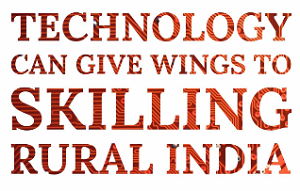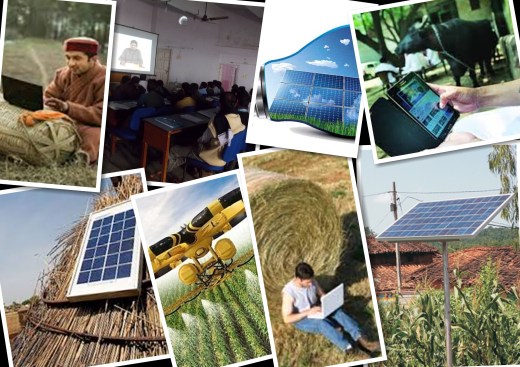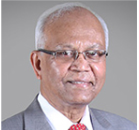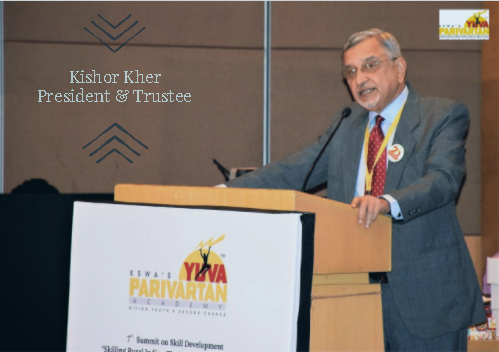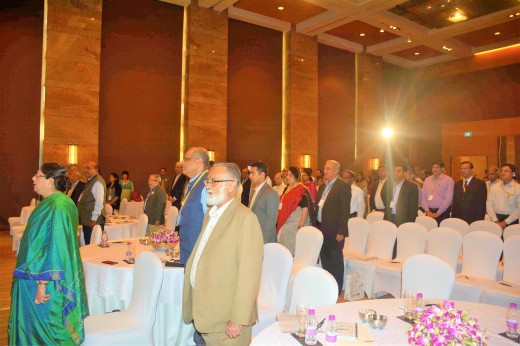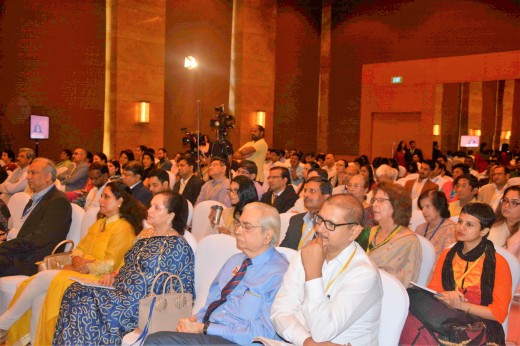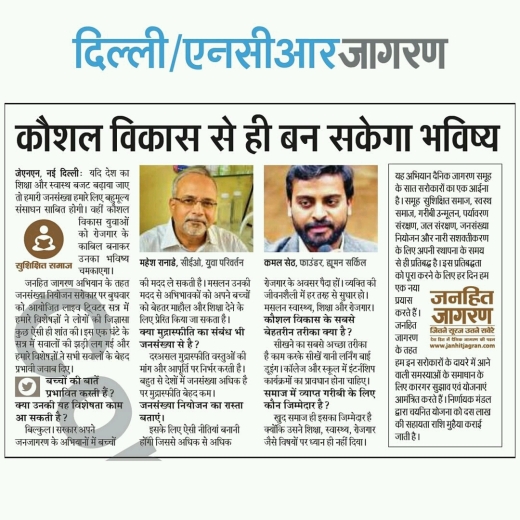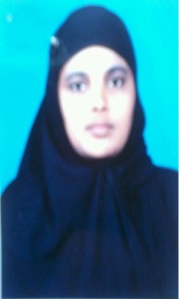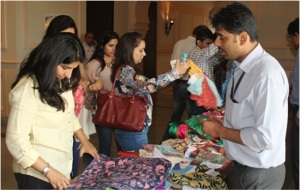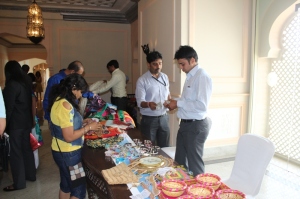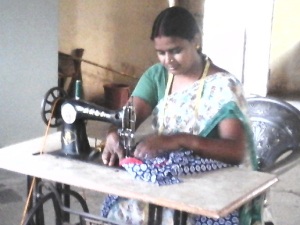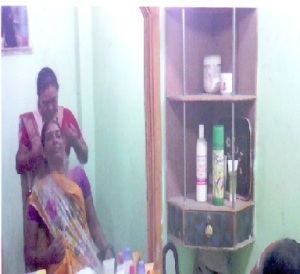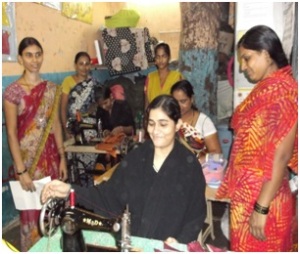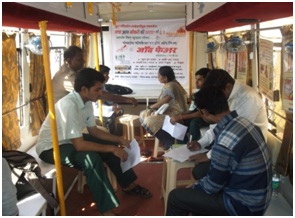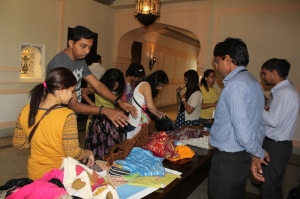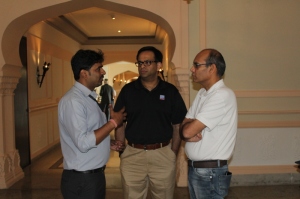Giving the Second Chance!
So you are having a hard day? Another day of teachers and homework or bosses and deadlines? Most of us crib about how bad the day was almost every evening. What we fail to really see is that we are actually fortunate to get the chance to learn or earn something respectfully, every day. For someone like Leena Balu Thakre, who was forced to give up studies after completing her SSC due to harsh financial conditions, a day like yours would have meant happiness!
A house helper since the age of 16, Leena, like many underprivileged youth in India, always dreamt of better days. All she needed was a second chance. And opportunity did knock at her door when a coordinator from the Yuva Parivartan team got in touch with her. After several counselling sessions, Leena signed up for the Tailoring Course at the organisation and learnt the art of stitching. She also got introduced to computers through the enabler Basic Computers course there.
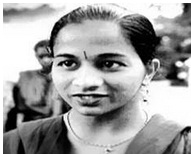
Today, not only is Leena armed with a skill for life, but also has a respectable desk job in a local company, thanks to her basic computer knowledge. “I am more confident today, and can talk to people easily. I am more aware of what is happening around in society and feel good that I am able to contribute to my family by earning a living,” says Leena when asked about the change. Better days are indeed ahead!
This is just one inspiring story of the innumerable young lives that Yuva Parivartan has enhanced. As the name suggests, the initiative aims to bring about a positive change for underprivileged youth of the country. Yuva Parivartan is looking to re-direct the lives of that young India which might not have the ideal life now, but has the dream & will to turnaround their futures.
The Yuva Parivartan Movement was started by Kherwadi Social Welfare Association (KSWA) in 1998. The intention was to provide counselling & vocational training in different skills to unmotivated school dropouts so that they do not go astray and become economically independent.
As the organisation says – ‘it is estimated that by 2020 around 500 million people in India will reach working age, which will be the largest in the world. At the same time, looking at the current scenario where more than 80% of youth in the country have not completed school, it can be inferred that these youth, unless given vocational skills, will neither have enough competency to work as skilled labour to meet the growing needs of various industries, nor will they work for long as casual labour before falling prey to an addiction leading to battered minds & bodies.’ Therefore it is crucial that such an effort reaches maximum young dropouts.
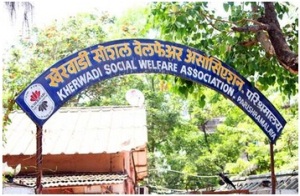
However, lack of an appropriate IT system created many hurdles. “With our growth objective of reaching 100,000 school dropouts across the country in a year, we needed more support. However, the government and donors were becoming cautious about the numbers and needed detailed reports. Therefore we realised we needed IT to sustain and grow,” explains Shivani Mehta, Senior Director, KSWA. “In 2010, we got a vendor to develop a software for us, but it turned out to be a disaster,” she adds.
The KSWA management team was losing confidence in its ability to implement an MIS system due to the failed initiative. The handling of vast data (Students & parents details, daily attendance, fees payments, exam marks) of around 80,000 students generated on year-to-year basis was getting difficult. Other problems included:
– Gauging the exact financial position in terms of fees collected
– Inability to handle new formats and initiative, which was hampering organic growth
– Difficulty in generating MIS reports
– Managing students’ information on partners’ behalf with around 400-500 students registered per annum with each of the 200-odd large partners and around 100 students registered per annum with each of the 2000-odd small partners
– Unavailability of an examination database (Question bank system) resulting in difficulty in launching exams and generating question papers with answer keys
– Managing recruitments after vocational training
Yuva Parivartan had come into existence to make a significant difference in the young lives of those who needed a second chance. However, going ahead to make a larger impact needed an accurate path and the confidence to walk on it.
The organisation was then directed to Mastek by a board member who had earlier interacted with the IT company. “Anil D’sa was given the responsibility to help us identify the right solution based on our requirements. He sat down with the senior team of KSWA, came up with a MIS solution and put together a project team for it,” says Mehta.
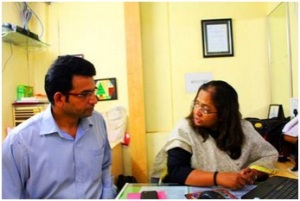
Through the initiative ‘Transforming NGOs through IT’ Mastek, along with KSWA management, decided that it would evaluate a ready-to-use School Management system and help the organisation to implement it as well. The solution would meet at least 80% of KSWA’s needs.
“Mastek did not develop any software for KSWA. However, KSWA is the first NGO where Mastek has implemented a solution and trained individuals from the NGO itself to manage operations,” says Anil D’sa, Project Manager.
“For an NGO like KSWA, an IT company cannot hire capability. It has to build capability within the system; who understands the business. We had to figure out the key people and groom them for the responsibility. There was a team of 8 people from within the NGO, who were trained to lead four different projects – two each,” D’sa explains about the process. “Initial engagement was school management system that began in 2011 and went live in 2013.”
The program was divided into four projects – Customisation, Testing, Training & IT setup. A major part of the program was training individuals from even the most remote parts of India. Interns from IT colleges were hired to train to the end users, ensuring complete coverage of training before the system could go live. Three days of training were carried out to ensure proper understanding of the system by the end users. “Mastek has trained, guided and moulded the end-users into software developers,” says D’sa.
This way the IT company not only offered support to the NGO in its proven capability area, but also provided guidance in managing the complete program to ensure smooth implementation.
The training not only taught a new skill & developed confidence in the individuals handling the system, but also in the NGO. “When started, we had no IT capabilities and were unsure about how we would be able to make this work, especially after the failure we experienced last time. But now, we are comfortable with managing the system with Anil’s guidance,” says Mehta.
D’sa too points out the significant change he saw– “Initially, due to the demons of failed implementation earlier, the NGO had a little lethargic and uninterested attitude. However, by the end of the project, they were excited and energetic. Their confidence has increased, as has their exposure and technical skills.” Mastek is now handholding Yuva Parivartan, by monitoring and reviewing operations on a bi-monthly basis and looking at enhancement of the process implemented.
As an IT professional with an experience of 15 years, D’sa found working on the project extremely satisfying. “We created a large impact. We helped KSWA in their goal to reach 1 million dropouts a year across India. These dropouts could have turned into criminals or lived a meagre life if KSWA was not able to reach them and we can proudly say Mastek contributed in an indirect, but big way,” says the Project Manager.
Mastek’s suggested IT solution not only put Yuva Parivartan back on track to achieve more, but gave them the pace to do so. It brought total transperancy in the system, got the organisation to a better financial position, built confidence for NGO to manage the IT operations among other positive changes and the ease of working.
“The IT solutions have made it easier to pull out detailed reports and track historical data and students’ progress. Besides this, we not also have a social impact mechanism, where we can track what the students are doing after a few months after completing the course. It has certainly added value,” explains KSWA’s Mehta.
However, there were a few challenges as well that Mastek’ s Anil D’sa faced while implementing the system. “Initially, there was not much clarity on key stakeholders; there were many operation heads and everyone had their own issues with the implementation until top management stepped in.”
Nevertheless, Yuva Parivartan and Mastek worked together to give hope and better days to many. When one young life changes for the good, it makes a difference to the individual’s family and surroundings as well.
Yuva Parivartan does not give up on the young school dropouts and gives them a second chance; and Mastek ensured that the NGO does not give up on its goals either. If there’s a will to make a difference, there’s always a way.
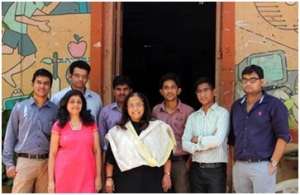
With pride and confidence, Shivani Mehta says the organisation is now aiming at reaching 1 million students a year. It is also looking to partner with other NGOs for further reach and improvement and make virtual learning websites. Here’s wishing them all the best!
